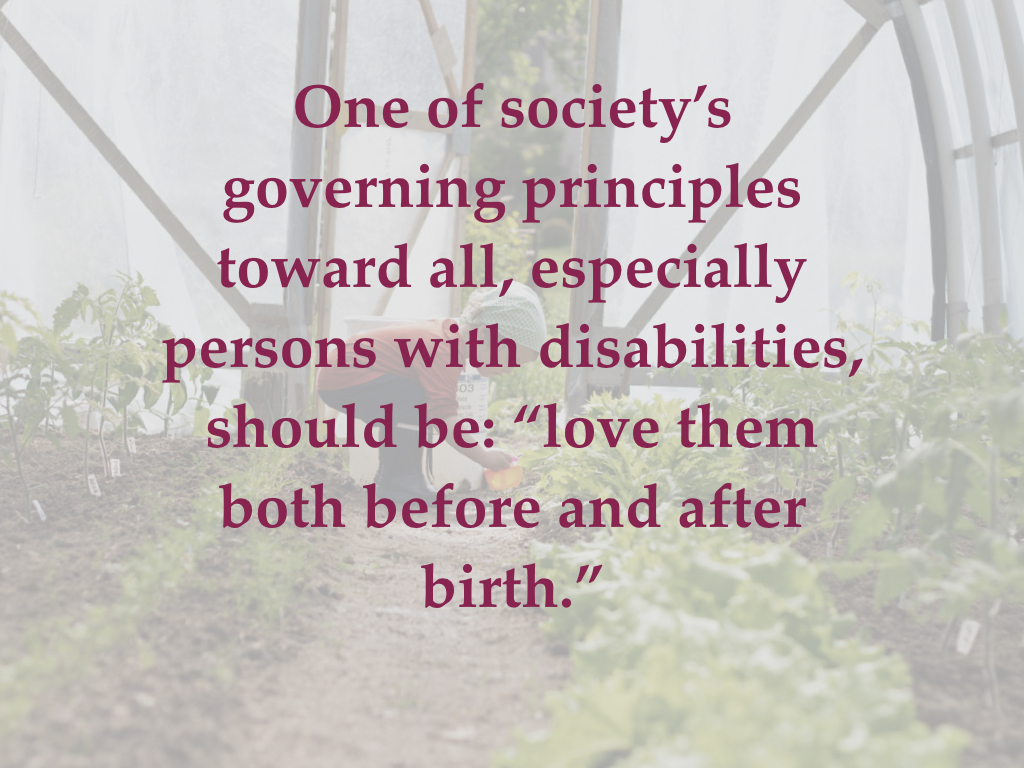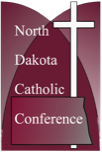
"Choice" and Disabilities = Eugenics
by Christopher Dodson
Executive Director
North Dakota Catholic Conference
January 2018
North Dakota’s prolife efforts are in the news again, but unless you pay attention to legislative battles to protect life in other states you might have missed it.
Ohio recently banned abortions made because of a prenatal Down syndrome diagnosis. The legislation has drawn national attention, but in 2013 North Dakota became the first state in the nation to enact such a law.
Why the renewed interest in banning such abortions? One reason could be the public’s realization that children with non-preventable genetic disabilities, especially children with Down syndrome, appear to be disappearing. There is data to indicate that the appearances are real.
A recent widely disseminated story reported that Iceland has nearly eliminated Down syndrome because nearly 100 percent of mothers whose unborn children test positive for the condition abort the child, leading prolife actress Patricia Heaton to tweet: “Iceland isn't actually eliminating Down Syndrome. They're just killing everybody that has it. Big difference.” In Denmark, 98 percent of the women abort. Estimates for the United States range from 68% to 90%.
At the same time, television, social media, and high schools tout a growing acceptance and inclusion of persons with Down syndrome. Even a casual observer would note the incongruity and ask what is wrong with this picture.
Much of this renewed attention, however, follows increased pressure to test for and subtly and not-so-subtly pressure women to abort children with disabilities.
In 2016 the American College of Obstetricians and Gynecologists (ACOG), an organization that has apparently never come across what it considers a distasteful abortion, recommended that all pregnant women undergo prenatal diagnostic testing for the unborn child. This differs from earlier policies that usually recommended such testing only if of the mother showed an increased risk of having a fetus affected with a genetic disorder. Keep in mind that in a majority of cases there is no treatment for the diagnoses. Though portrayed as an effort to give women more “accurate information,” the new guidelines really amount to casting a wider net to find and eliminate more children with genetic disabilities.
Ohio, therefore, like Indiana, has followed North Dakota’s lead to send a message that discrimination with fatal consequences against children with Down syndrome has no place in a society that espouses inclusion.
North Dakota’s law passed in 2013, a year in which the state legislature considered several prolife bills and enacted most of them. HB 1305, as it was known that session, turned out to be one of the session’s least controversial bills. There was little opposition. The only organization to testify in opposition was the state’s main abortion-rights group, the North Dakota Women’s Network. Even Planned Parenthood didn’t bother to appear. The legislation, which was combined with a ban on sex-selection abortions, passed the House 64 to 27. It passed the Senate 27 to 15.
Admittedly, such laws are hard to enforce. Women could always lie about why they choose an abortion. Difficulty of enforcement, however, is not by itself an excuse to avoid enacting a good law.
The constitutionality of such laws is unsettled. Lower courts have assumed that the Supreme Court’s abortion jurisprudence prohibits states from looking at the reasons for particular abortions. It has been some time, however, since the Court has looked at the scope of the “right to abortion” in such detail and some of its decisions appear to open the door for states to consider the social consequences of particular abortions. Certainly, a case can be made that abortions solely for the purposes of eliminating undesirable genetic traits has consequences on society’s commitment to equal rights and inclusion.
The state’s only abortion center at first challenged the law but then dropped its case a few months later.
While it is true that restricting abortions pursued solely because of genetic conditions furthers the cause of life, it is also true that failure to pass such legislation undercuts efforts toward inclusion for all persons. In 1983 North Dakota became a leader when it passed its Human Rights Act and extended protection to persons with disabilities. The federal government followed in 1990 with the Americans with Disabilities Act. Nevertheless, persons with disabilities still face discrimination and a lack of services and no protection in the womb.
The marginalization of and willful blindness toward persons with disabilities should come as no surprise when we recognize that society not only allows but encourages destroying those persons prenatally. We provide some legal protection post-birth, but none before birth.
One of the prolife mottoes is “love them both,” referring to caring for the unborn child and his or her mother. One of society’s governing principles toward all, especially persons with disabilities, should be: “love them both before and after birth.”
There is probably a hidden relation between governments failing to adequately fund services for persons with disabilities and simultaneously allowing killing those persons early in life.
At a time when some politicians propose cutting off assistance to children because of their parents’ undesirable activities and deporting children brought here illegally by their parents, punishing children because of their parent’s refusal to abort is certainly within the realm of political motivations.
Though they would probably never admit it, it would not be surprising if many taxpayers and legislators think: “Why should the government pay to help these kids just because their mother didn’t make the right choice and abort them?”
Such is life — or lack of it — in the world of “choice.”
What We Do
The North Dakota Catholic Conference acts on behalf of the Roman Catholic bishops of North Dakota to respond to public policy issues of concern to the Catholic Church and to educate Catholics and the general public about Catholic social doctrine.

Contact Us
North Dakota Catholic Conference
103 South Third Street, Suite 10
Bismarck, North Dakota
58501
1-888-419-1237
701-223-2519
Contact Us

